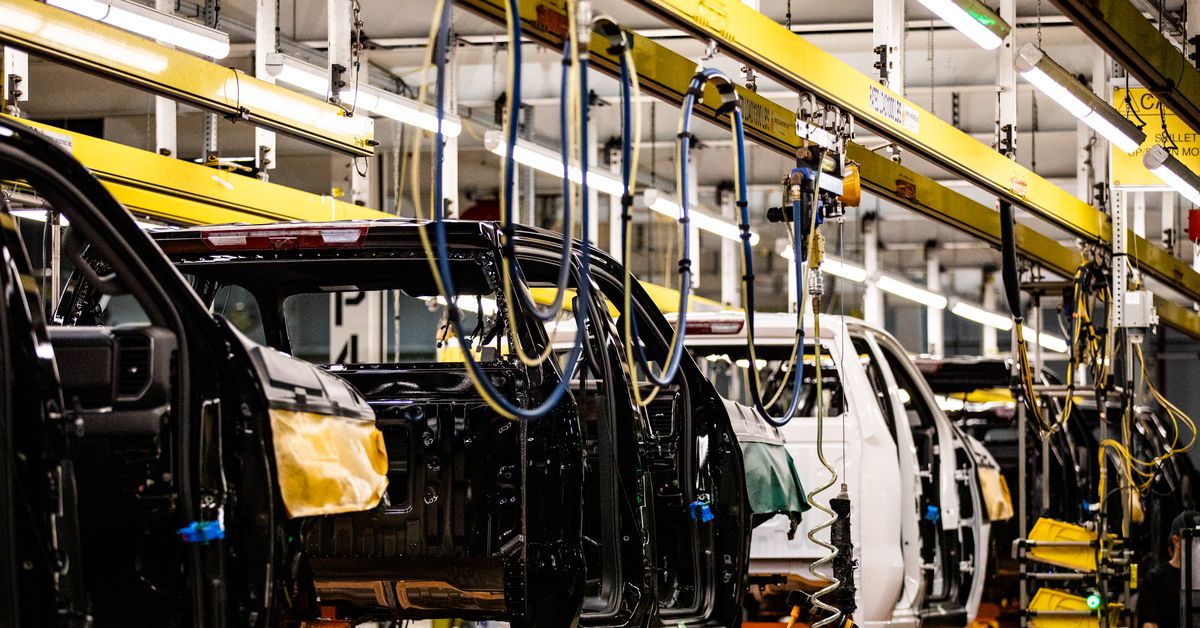Right-to-Repair Legislation: A Call for Transparency and Consumer Protection
A bipartisan group of senators has sent a scathing letter to the CEOs of top automakers, urging them to abandon their "hypocritical, profit-driven" opposition to national right-to-repair legislation. The senators, Sens. Elizabeth Warren (D-MA), Jeff Merkley (D-OR), and Josh Hawley (R-MO), are demanding that the auto industry drop its fierce opposition to state and national right-to-repair efforts.
The Right-to-Repair Movement: A Growing Concern
For years, the right-to-repair movement has focused on consumer electronics, such as phones and laptops. However, with the increasing complexity of modern vehicles, the idea that consumers should have control over how and where they repair their cars is gaining momentum. As more vehicles become "giant computers on wheels," automakers are collecting vast amounts of data on their customers, including driving habits.
Data Sharing: A Lucrative Business
TheNew York Times published an investigation earlier this year revealing that General Motors provides microdetails about its customers’ driving habits to insurance companies without their consent. This is just one example of the auto industry’s practice of collecting and selling sensitive consumer data for profit. Automakers claim to support right-to-repair laws, but their actions suggest otherwise.
The Auto Industry’s Position: A Hypocritical Stance
While some facts bear out the auto industry’s claims of supporting right-to-repair, the reality is far from it. Small, independent auto body and repair shops have been forced out of business as automakers funnel all work to franchised dealerships, which often cost more than smaller garages. The senators are calling out the auto industry for its monopolistic practices and demanding that they drop their opposition to right-to-repair laws.
Cybersecurity Concerns: A Speculative Excuse
Automakers have raised cybersecurity concerns as an excuse for fighting right-to-repair laws, but these concerns are based on speculative future risks rather than facts. The Federal Trade Commission has found no empirical evidence to support the auto industry’s claims that independent shops would be more likely to compromise customer data.
A Profit-Driven Agenda
The senators believe it is more likely that auto companies want to limit access to vehicle data for profit-driven reasons, rather than concerns about cybersecurity. While carmakers claim to care about consumer security and privacy, few actually comply with basic security standards when collecting, sharing, or selling consumer data.
Data Sharing Practices: A Lack of Transparency
The senators are pressing the auto CEOs to answer a list of questions about their data-gathering practices, including:
- What types of sensitive consumer data do they collect?
- How is this data shared and sold to third parties?
- Do consumers have clear consent before sharing their data?
A Call for Action
The senators conclude by urging the auto CEOs to abandon their hypocritical opposition to right-to-repair laws. They believe that Americans deserve the right to repair their cars wherever they choose, and independent repair shops deserve a chance to compete with these giants.
"We’re pushing these automakers to stop ripping Americans off," Warren said in a statement toThe Verge. "Americans deserve the right to repair their cars wherever they choose, and independent repair shops deserve a chance to compete with these giants."
A Growing Movement
The right-to-repair movement is gaining momentum, with several states passing laws aimed at protecting consumers from high prices and unscrupulous practices. In 2020, Massachusetts voters approved a ballot measure to give car owners and independent repair shops greater access to vehicle repair data. However, the auto industry sued to block the law, and four years later, it remains dormant.
Conclusion
The right-to-repair movement is not just about consumer choice; it’s also about protecting consumers from monopolistic practices and ensuring that they have control over their own data. The senators’ letter is a call to action for the auto industry to abandon its hypocritical opposition to right-to-repair laws and prioritize transparency and consumer protection.
Appendix: Key Statistics
- 2020: Massachusetts voters approve ballot measure giving car owners and independent repair shops greater access to vehicle repair data.
- 2019: The Federal Trade Commission finds no empirical evidence to support the auto industry’s claims that independent shops would be more likely to compromise customer data.
- 2018: General Motors provides microdetails about its customers’ driving habits to insurance companies without their consent.
Recommendations
- Automakers should abandon their opposition to right-to-repair laws and prioritize transparency and consumer protection.
- Consumers have the right to control their own data, including how it is collected, shared, and sold.
- Independent repair shops deserve a chance to compete with franchised dealerships and provide consumers with more choices.
Resources



